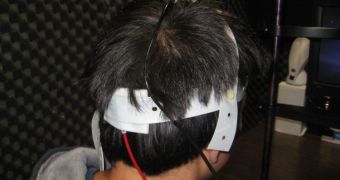Startup GoFlow is planning to develop and commercialize do-it-yourself (DIY) Transcranial Direct Stimulation (TDS) kits, which could be made available for as little as $99. These devices would allow people to overclock their brains in the comfort of their own homes.
The technique relies on delivering a steady direct current to the brain, similarly to how computer CPUs are made to run faster by feeding more electricity through them. Some scientists believe that this approach may work on the human brain as well, simply because it too relies on electricity to operate.
Basically, a TDS kit would include a few electrodes, which people would attach to whatever area of their brains they want to improve. A constant, low-level current would pass through neurons, forcing them to strengthen their connections, called synapses.
At this point, the approach is mostly used to treat psychological disorders, including anxiety and depression. Additionally, some doctors employ it to address the motor disturbances that develop in patients following a stroke, Technology Review reports.
Many bioethicists are currently debating whether TDS should be used at all. For example, some parents have already showed their interest in using these devices to promote learning and memory formation in their children. The end goal would be to improve their academic performances.
This raises the question of whether that is fair to the other kids. TDS devices would be more accessible to the rich, which means that the divide between the proverbial 1 percent and the other 99 percent may grow even wider.
However, other scientists say that direct transcranial stimulation may be a new kind of coffee, or Adderall. The latter is a drug commonly administered to kids and teenagers suffering from attention deficit hyperactivity disorder (ADHD).
One advantage that TDS could have over other methods of stimulating the brain is that it has no side-effects, since it acts directly on neurons, but not through chemicals. At this point though, scientists are not recommending that people use TDS kits unsupervised, at home.
But this approach to bettering our minds is not likely to go away anytime soon. Most likely, in a few years' time, scientists will develop TDS kits that people could use at home for a wide range of applications. That world would be very interesting to see.

 14 DAY TRIAL //
14 DAY TRIAL //